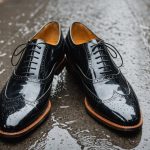Understanding Static and Frizz in Winter
Navigating the winter months poses unique challenges for hair, primarily due to static hair and winter frizz. But what triggers these hair woes during this chilly season?
Static hair is often a result of the dry winter air. Without sufficient moisture, your hair loses its charge balance, causing the strands to repel each other—hence, the frustrating flyaways. On the other hand, winter frizz stems from a mix of dry air and indoor heating, both common during the UK winter. These conditions strip hair of its natural oils, making it porous and susceptible to frizz.
Have you seen this : Protect your skin: top tips for battling hard water effects in the uk
The UK’s climate, characterised by frequent humidity and temperature fluctuations, plays a crucial role in hair texture. While humidity is typically associated with summer, heating systems used in winter create an environment that rapidly dehydrates hair, intensifying frizz and static.
Understanding the science behind these conditions is essential to tackling them effectively. By taking proactive measures, one can ensure better hair days, even in the most unpredictable weather. Such understanding not only aids in choosing the right products but also in adapting suitable routines to maintain hair health.
Also to read : Harness the incredible benefits of aloe vera: essential strategies to transform your beauty routine
Expert Insights on Winter Hair Management
Winter is a challenging season for maintaining healthy hair, as the cold weather often leads to a host of hair issues. Hair care expertise emphasizes understanding the causes of these problems and employing strategies to alleviate them. Professionals in the hair industry are pivotal in unraveling common misconceptions about winter hair care and providing solutions that are practical and effective.
Interviews with hair care professionals highlight the impact of dry indoor heat and cold outdoor air on hair texture, leading to increased static and frizz. They stress the importance of moisture, using hair care products designed for hydration and protection. Expert insights also debunk myths that suggest avoiding regular hair washing in the winter; instead, proper cleansing and conditioning can ensure hair remains resilient.
For those struggling with persistent hair issues, seeking professional help can offer tailored solutions. Professionals can guide you in selecting the right winter regimen and provide valuable advice on hair styling techniques to reduce damage. Armed with knowledge and the right products, winter hair management becomes not just manageable, but an opportunity to keep your hair healthy and vibrant.
Best Practices for Winter Hair Care
Transitioning into a winter hair care routine requires thoughtful adjustments to protect your locks from harsh conditions. During this season, incorporating a daily regimen is vital. Begin by focusing on moisturizing products to counteract dryness. Opting for rich, hydrating shampoos and conditioners nourishes hair, preventing static and winter frizz. A leave-in conditioner can also work wonders by sealing in moisture and providing added protection.
Conditioning isn’t where moisture should end. To ensure your hair remains smooth, consider layering with a hair oil or serum. These provide an extra humidity barrier, tackling the dry winter air head-on.
When it comes to effective cleansing and conditioning in cold weather, it’s important to avoid over-washing. Stripping your hair of natural oils exacerbates dryness, so aim for gentle, sulphate-free options. Conditioning should be a deliberate process, allowing time for products to deeply penetrate and fortify strands.
Finally, adopt techniques to mitigate heat stress. Lowering the temperature on styling tools and employing thermal protectants can drastically reduce damage risks. Remember, adapting your hair care to suit winter conditions will keep your tresses healthy and vibrant throughout the season.
Recommended Products for Managing Winter Hair
When winter strikes, the right hair products are pivotal in maintaining hydrated and manageable hair. Among the most effective are conditioners and leave-in treatments designed to combat dryness and static. Top conditioners focus on hydration, infusing moisture into every strand to handle winter’s harshness. They prevent dryness that often leads to static hair, providing a smooth finish.
Top Conditioners and Leave-In Treatments
Leave-in treatments are ideal for taming winter frizz, offering long-lasting moisture and protection. They form a barrier against the frizz-inducing dry air and are particularly useful in maintaining hair health during the cold months.
Effective Anti-Static Sprays and Serums
Anti-static sprays and serums offer quick fixes for static hair, neutralising electrical charges on the hair surface. These are essential additions to a winter hair regimen, ensuring hair remains smooth.
Best Styling Tools for Winter Hair
Opt for heat styling tools with adjustable temperature settings to minimise damage. These tools should be used sparingly, but when necessary, they assist in styling while safeguarding your locks against harsh conditions. Always use these in tandem with a heat protectant for the best results.
Techniques to Reduce Frizz and Static
Managing hair in winter requires a strategic approach to combat frizz and static effectively. First and foremost, adopting reliable hair styling techniques is essential. Begin by using ion technology in hairdryers, which helps to reduce static by neutralizing electrical charges. This method ensures that as you dry your hair, you minimize the chances of flyaways.
When it comes to styling, consider using a wide-toothed comb instead of a brush to detangle wet hair. This gentle method reduces the risk of frizz by preventing breakage. Applying serums or oils before using styling tools can act as a protective layer, locking in moisture and adding smoothness.
Heat styling should be done responsibly. Tools like straighteners or curlers should not exceed 180°C; extreme temperatures can exacerbate frizz by damaging the hair cuticle. Using these tools alongside heat protectants is crucial to safeguard hair integrity.
Venturing outdoors requires extra care. Don a hat or scarf to shield your locks from external elements such as wind and humidity, further contributing to unwanted frizz. Mastery of these techniques ensures that even in harsh winter conditions, your hair remains smooth and manageable.
Techniques to Reduce Frizz and Static
In winter, taming frizz and static hair demands mastery of precise techniques. To minimize frizz, drying and styling methods play a critical role. Begin with gently towel-drying hair using a microfibre towel, reducing friction that often exacerbates frizz. When using heat styling tools, such as straighteners or blow dryers, it’s essential to keep the temperature moderate to protect against heat damage. A high setting can compromise hair structure, promoting unwanted frizz.
Temperature and technique go hand in hand. Apply a heat-protectant spray before styling; this creates a protective layer, shielding hair from high temperatures. As a rule of thumb, wave and curl with tools that allow adjustable heat settings, optimising safety.
When heading outdoors, consider the weather. Humidity fluctuations, typical in the UK, demand an extra layer of protection. A lightweight, humidity-resistant spray can maintain your style, combating moisture-laden air. For those battling harsh winds, securing hair in a loose braid or bun prevents tangles and static charge build-up.
Lastly, know your environment and adapt. Certain locations in the UK experience varied climate patterns, tailoring your approach ensures hair stays manageable and frizz-free regardless of the weather.
Localized Advice for Hair Care in the UK
In the UK, hair care demands careful consideration due to the diverse regional climate variations. The country’s weather is notoriously unpredictable, with frequent shifts that can wreak havoc on hair health. Thus, understanding local weather patterns is crucial for maintaining healthy hair through differing seasons.
Customizing hair routines becomes essential, especially when faced with fluctuating humidity and temperatures. Coastal areas might experience more humidity influence, causing increased frizz, while inland regions could suffer from drier conditions, exacerbating static hair. To combat these challenges, tailoring routines specific to your locality ensures your hair stays resilient.
Adapting techniques and products by location enhances hair care efficacy. In regions with higher humidity, anti-frizz serums and leave-in conditioners with humidity-resistant properties become indispensable. Conversely, for drier areas, focusing on deeply moisturising products helps maintain balance.
Importantly, do not overlook the role of accessories. In windy locales, scarves or hats can act as protective barriers, maintaining hairstyles while preventing weather-induced frizz. This localized approach ensures that regardless of where you reside in the UK, your hair receives the care it deserves, safeguarding its vitality throughout winter.
Techniques to Reduce Frizz and Static
Mastering hair styling techniques to combat frizz control during winter is crucial. One of the essential methods involves safely drying your hair. Opt for a microfibre towel to gently squeeze out excess moisture, minimising friction which contributes to frizz. When blow-drying, utilize a hairdryer with ion technology. This advanced feature neutralises static by balancing electrical charges, resulting in smoother and more manageable hair.
Heat styling tools demand careful use. Ensure temperatures do not exceed 180°C to avoid damaging hair cuticles. Always apply a heat protectant prior to styling; this forms a shield against thermal damage, preserving your hair’s health and integrity.
When venturing outside, especially in windy conditions, protect your locks by wearing a hat or loosely braiding your hair. This simple technique reduces exposure to harsh elements, preventing frizz and static accumulation.
Incorporating these targeted practices into your hair styling techniques will transform your winter hair care routine. By prioritising protection and employing controlled heat use, you can maintain smoother, more resilient hair throughout the colder months. Tailored styling ensures your hair remains vibrant, no matter the winter weather.
Localized Advice for Hair Care in the UK
Hair care in the UK often encounters distinct challenges due to UK climate variations. With the country experiencing rapid shifts in weather, it’s vital to customize your hair care routine to local patterns. For instance, coastal areas generally have higher humidity, leading to increased frizz. Here, investing in anti-frizz serums becomes essential. Conversely, inland areas may face drier climates, causing static hair, making deep moisturising conditioners invaluable.
Adjusting your techniques based on your location is key. In high-humidity regions, incorporate products with humidity-resistant properties to maintain hair texture. Meanwhile, in drier parts, focus on hydration-rich solutions to combat dryness and static. Such targeted adjustments can enhance overall hair health.
Additionally, accessories play a crucial role in protecting against harsh weather. In wind-prone areas, using hats or scarves can help preserve hairstyle integrity and reduce frizz. By understanding and responding to specific local climate conditions, you ensure your hair remains vibrant and manageable regardless of the UK’s unpredictable weather.
Expert Insights on Winter Hair Management
Winter hair care can be a puzzle, but professional insight sheds light on how to tackle common issues such as static hair and winter frizz. Hair experts stress the significance of understanding the root causes of these problems, often rooted in the interplay of dry indoor heat and chilly outdoor air.
Professionals recommend a strategic approach focused on moisture. A winter regimen should prioritize hydration through products that lock in moisture while protecting the hair surface. It’s a misconception that hair should be washed less frequently in winter; experts clarify that regular washing with appropriate products helps maintain hair health, enhancing resilience against winter conditions.
Furthermore, experts encourage considering professional guidance for personalized care. A professional can tailor a hair care routine and suggest specific styling techniques, ensuring that tools and products are used correctly to minimize damage. For those experiencing persistent hair issues, professional advice can make a significant difference in winter hair management.
Expert opinions reinforce the benefits of informed care and adapting routines to suit the season’s challenges. Armed with these insights, anyone can maintain vibrant, healthy hair throughout winter, harnessing the expertise to their advantage.








